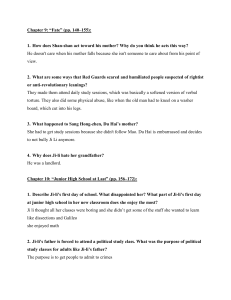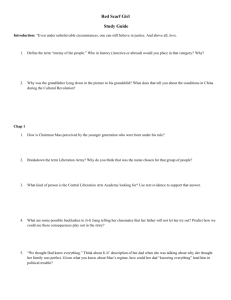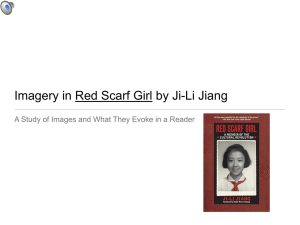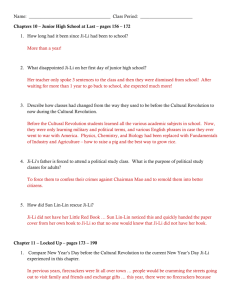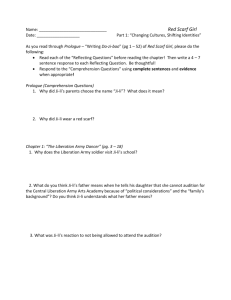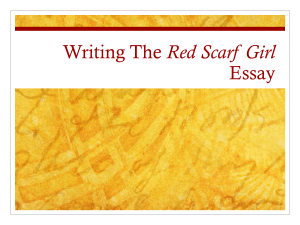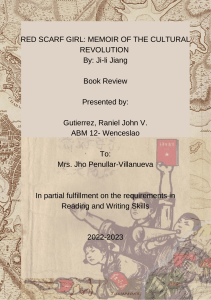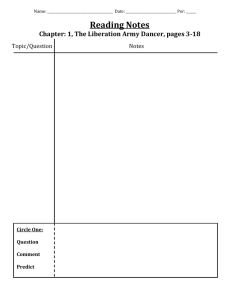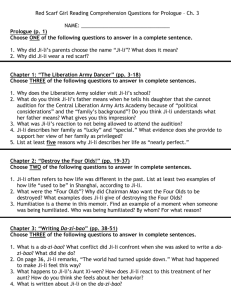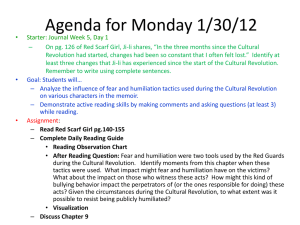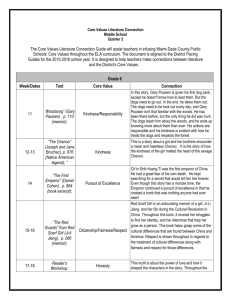RSG - Chapters 4-6 - with answers
advertisement
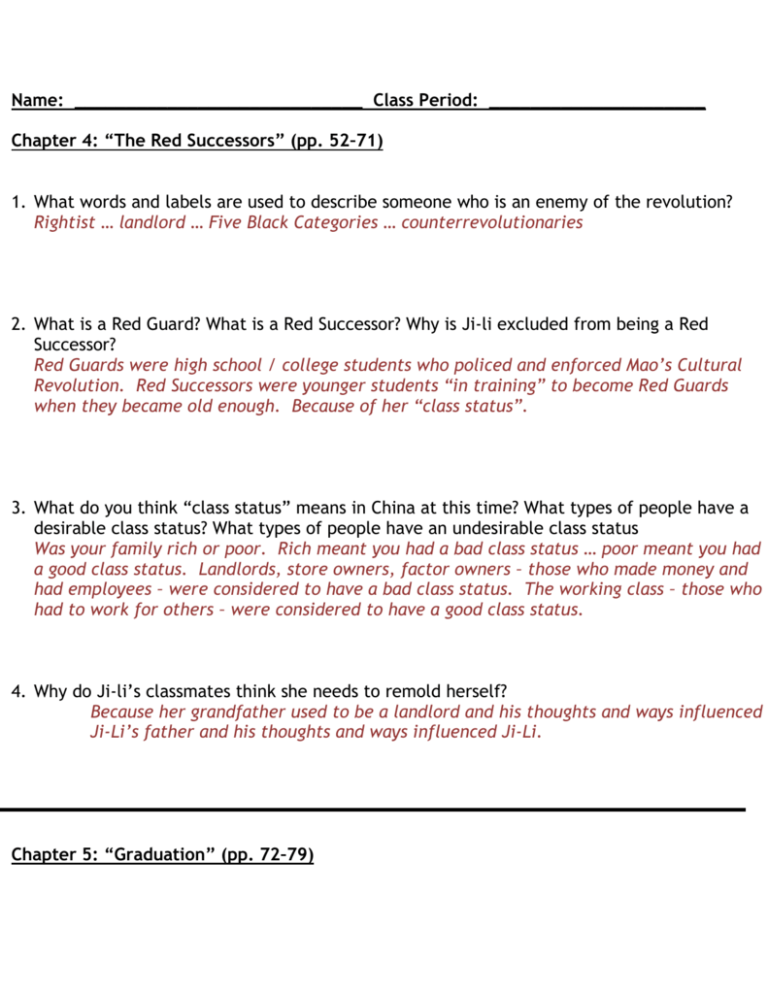
Name: ____________________________ Class Period: _____________________ Chapter 4: “The Red Successors” (pp. 52–71) 1. What words and labels are used to describe someone who is an enemy of the revolution? Rightist … landlord … Five Black Categories … counterrevolutionaries 2. What is a Red Guard? What is a Red Successor? Why is Ji-li excluded from being a Red Successor? Red Guards were high school / college students who policed and enforced Mao’s Cultural Revolution. Red Successors were younger students “in training” to become Red Guards when they became old enough. Because of her “class status”. 3. What do you think “class status” means in China at this time? What types of people have a desirable class status? What types of people have an undesirable class status Was your family rich or poor. Rich meant you had a bad class status … poor meant you had a good class status. Landlords, store owners, factor owners – those who made money and had employees – were considered to have a bad class status. The working class – those who had to work for others – were considered to have a good class status. 4. Why do Ji-li’s classmates think she needs to remold herself? Because her grandfather used to be a landlord and his thoughts and ways influenced Ji-Li’s father and his thoughts and ways influenced Ji-Li. Chapter 5: “Graduation” (pp. 72–79) 1. How were school assignments made before the Cultural Revolution? How are they being made now? What does Ji-li think of the new school assignment system? School assignments were made based on grades earned on entrance exams. High grades went to the best junior high schools. Now, school assignments would be based on teacher recommendations. Ji-Li doesn’t like the new system. Everyone would graduate regardless of their efforts in school. 2. Why is Ji-li so excited when she hears where she will be going to junior high school? What changes at the end of the chapter? Because the teachers assigned her to the best school – the school she wanted to go to. At the end of the chapter, teacher recommendations had been abolished as well and now students would go to the school within their district. Now she could not go to the elite school. 3. What does Ji-li think will happen to many of the books in the school library? Many would be destroyed – declared to be poison under the new standards. Chapter 6: “The Sound of Drums and Gongs” (pp. 80–99) 1. What were the Red Guards trying to find when they searched through houses? What does “the sound of drums and gongs” represent? Evidence of counterrevolutionaries and the treasures they hoared. The sound of drums and gongs meant that the Red Guards were heading to another house to conduct another search. 2. Why do Ji-li’s parents fire Song Po-po? How does Ji-li’s role in her family change as a result? Having a housekeeper is a sign of a bourgeoisie lifestyle – exploiting the working class people. Now she shopped for food in the market. 3. Why does the Jiang family turn silk dresses into mops and paint red leather trunks black? They represented a rich life style and if found, the family would be accused of hoarding their treasures.
